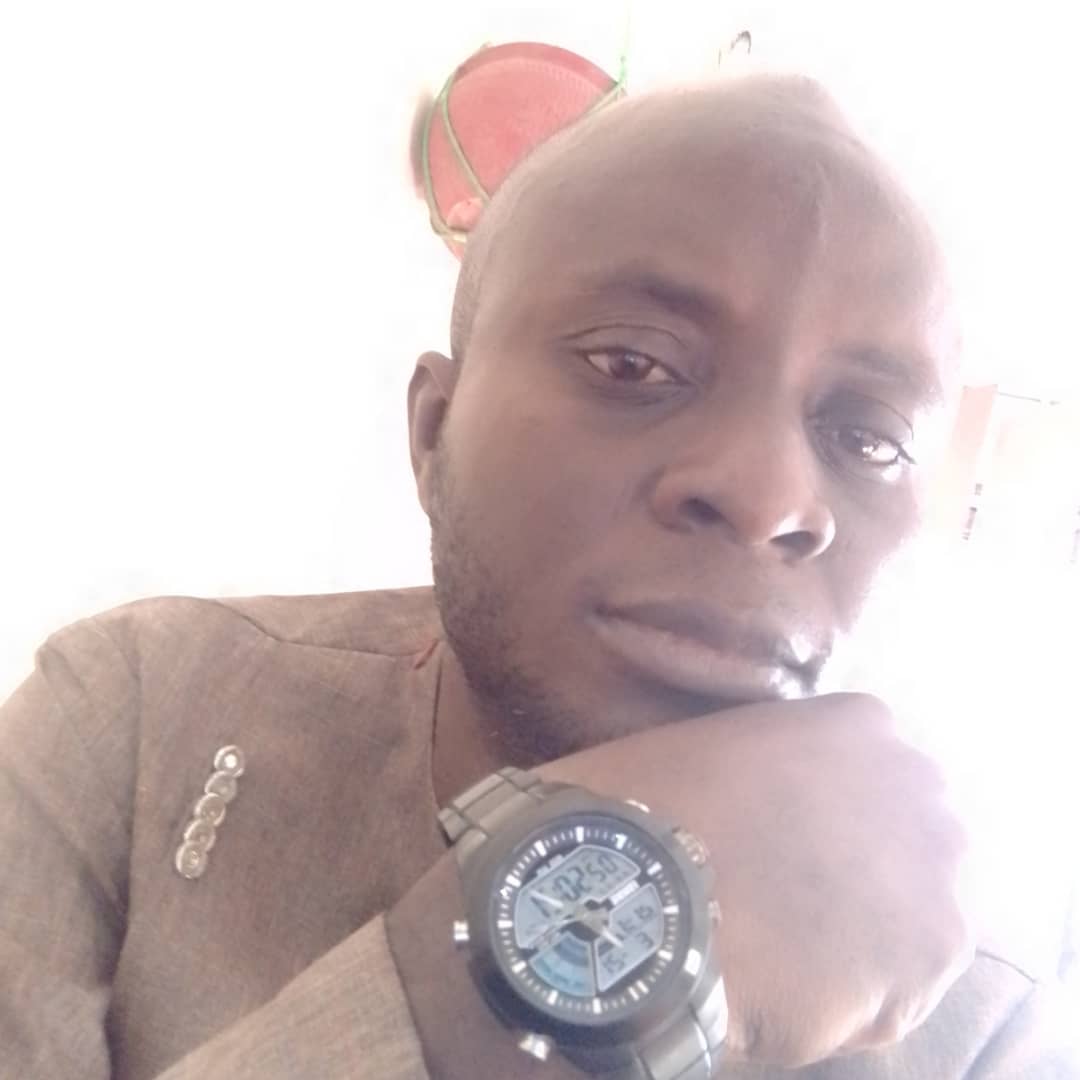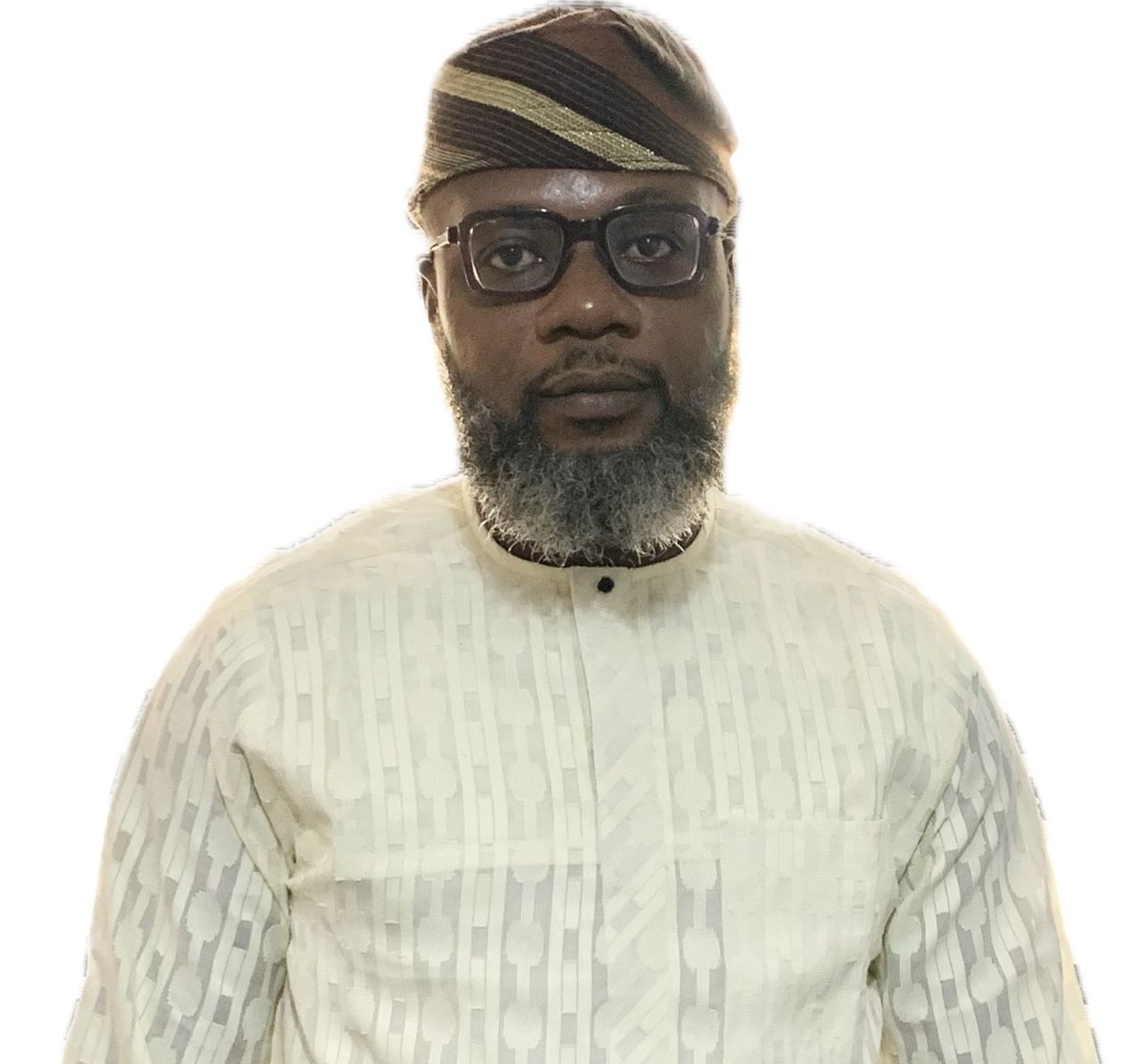Youth in Governance: Africa in Senegal’s Story. By Olushola Omogbehin

Youth in Governance: Africa in Senegal’s Story

The emergence of Bassirou Diomaye Faye, a 44 years old writer and tax collector, as the 5th democratically elected President of the Republic of Senegal, has again brought up a vital subject about African leadership, particularly at a time when the continent grapples with serious challenge of development in the hand of some old leaders that Omoyele Sowore called dinosaurs.
The conundrum which challenges the option of old to young leaders in Africa, has generated and still generating debates from different quarters.

As many people believe that African leaders (presidents) are group of old people, many citizens and denizens of Africa with good sense of history believe otherwise.
But for the record and education of those who might not know by virtue of age or otherwise, it will be good to set the record straight by doing a brief chronology of leadership of some African nations since independence and establish cumulatively, the category of leaders Africa has so far paraded.
Also important for analysis in this article is to determine if leadership performance is a question of age and consider some examples so far in African history. Yes, it is a common believe that leadership should start with a blend of experience and youthfulness, but so far, there is no established law or theory anywhere that attest to the age of an individual or the number of years spent in power as the determinant of leadership performance. If leadership performance is a function of youthfulness, I am sure some countries in Africa would have attained development more than their current status because at independence, many African countries were ruled by young people.

It is these same set of young rulers that grow and perpetuate themselves in power and refuse to leave the stage thereby becoming thorns in the flesh of the continent. As I have said, maybe we should consider the chronology of leadership across African countries and see how the continent has fared vis-à-vis young versus old leaders. Let us begin our analysis from North Africa.
The first African country to officially gain independence from European power following the European “Scramble for Africa” in the late 19th and early 20th Centuries was Egypt when it became independent from United Kingdom in 1922.
Though the British government continued to exert indirect control over Egypt, true independent however was attained in 1952 when Mohamed Naguib became the first president in 1953 at the age of 52 having been born on 20th February 1901.
Gamal Abdel Nasser succeeded him as the second President of Egypt and was 36 years old when he assumed office in 1954. Born on 18th April, 1907, Mbarek Bekkay emerged as the President of the Government of Morocco on 7th December 1955 at the age of 48 and ruled till 12th May 1958. Immediately after him, Ahmed Balafrej became the President of Morocco at the age of 50 on 12th May 1958 having been born in 1908 while his successor, Abdallah Ibrahim, born in 1918 become President at 40 years old on 16th December 1958.
In Algeria, Ahmed Ben Bella served as head of government from 27th September 1962 at 46 years of age and also became the first president a year later from 15th September 1963 at age 47 to June 1965. His successor, Mohammed Ben Brahim was born in August 1932 and turned out as the Chairman of the Revolutionary Council of Algeria from 19th June 1965 at 33 years old till 12th December 1976 when he became President of Algeria at 44 years of age till his death in 1978.
The third man to rule Algeria was Chadli Bendjedid. He was born on 14th April 1929 and assumed the highest office in the land (President) on 9th February 1979 at age 50. Still in North Africa, the Kingdom of Tunisia was first led by Habib Bourguiba as a prime minister at age 53 from 1956 to 1957 and later as the first president from 1957 at 57 years old to 1987. He was born on 3rd August 1903. Ben Ali who came after him was born on 3rd September 1936 and became President of Tunisia on 7th November 1987 at age 51. In Libya, Muammar Gaddafi was born on 7th June 1942 and began to rule from 1969 at age 27 and elongated himself in office till 2011 when he was killed.
In Sudan, Sir Al-Khatim Al-Khalifa was born in 1919 and became acting president in 1964 at age 45 while the first democratically elected president, Gaafar Nimeiry was born on 1st January 1930 and assumed presidential throne in 1969 at 39 years old. From East Africa, Julius Nyerere (Mwalimu of Africa) was born on 13th April, 1922 and governed Tanganyika as prime minister from 1961 at age 39 and also led its successor state, Tanzania from 1964 at age 42 respectively.
The man that took over from him, Ali Hassan Mwinyi became president at 65 years old. In Uganda, Apollo Milto Obote who came to this world on 28th December 1925, became the second Prime Minister of Uganda in 1962 at age 37 till 1966 and later the second President of Uganda in 1966 at age 41 till 1971. He took another term from 1980 to 1985. Kenneth Kaunda was born on 28th April 1924 and became the first President of Zambia in 1964 at age 40. His successor, Frederick Chiluba was the second President of Zambia who started leading the nation at age 48 in 1991. In Zimbabwe, Canaan Banana, a Methodist minister, born in 1936, he became the first President of Zimbabwe on 18th April, 1980 at age 44 and handed over power to Robert Mugabe, a 63 years old man. The first President of Somalia was Aden Abdulle Osman. He was born on 9th December, 1908 and emerged as president on 1st July 1960 at age 52 while his successor, Abdirashid Ali Sharmarke who came to this world on 8th June 1919, became a Prime Minister of Somalia Republic on 12th July 1960 at age 41 and President of Somalia Republic from 6th July 1967 at age 48 only to be assassinated on October 15th, 1969. Gregoire Kayibanda led Rwanda for many years from 1961 at age 37 and handed over to a 41 years old Juvenal Habyarimana who also led the nation for many years. I hope you are taking note of their age.
Coming to West Africa, Nnamdi Azikiwe became the first ceremonial President of the giant of Africa (Nigeria) at age 59 while Abubakar Tafawa Balewa was 51 years old when he became our prime minister. Subsequently, Johnson T. Aguiyi Ironsi became military head of state at 42 years old while Yakubu Gowon succeeded him at 32 years of age. Murtala Muhammed became head of state at 37 years old while Olusegun Obasanjo at the age of 39 took over from him. Ushering Nigeria into civil rule, Obasanjo delivered power to a 54 years old Shehu Shagari whose government was again toppled by a 41 years of old Muhammadu Buhari and the chain continues. Ibrahim G. Babangida ruled Nigeria at 44, Sani Abacha ruled at 50 while Abdulsalam Abubakar ruled at 56 years old. Coming back to civilian rule, Olusegun Obasanjo came back as president at 62 years old and handed over eight years later to Umaru Musa Yar’Adua who was then 56 years old. Born on 20th November, 1957, Goodluck Ebele Jonathan took over the mantle of leadership on 6th May, 2010 when he was 53 years old after the ugly departure of his boss and relinquished power to Muhammadu Buhari again but now as a septuagenarian who again handed over to another septuagenarian, Bola Ahmed Tinubu, thereby making the duo the oldest leaders Nigeria has so far unveiled.
So, among the thirteen presidents Nigeria has produced since independence, only three crossed 60 years. Is this enough reason to conclude that we are being ruled by old people?
Please follow me to Ghana. Kwame Nkrumal was given birth to on 21st September, 1909 and became the first Prime Minister and later the President of Ghana from 1957 at 48 years old and was succeeded by Joseph Arthur Ankrah, a 51 years old army general who led Ghana for about 3 years. In Niger Republic, Hamani Diori was born in 1916 and became president in 1960 at 44 years old while Seyni Kountche who was given birth to in 1931 came after him in April 1974 at 41 years old.
Maurice Tameogo ruled Burkina Faso from 1959 at age 38 while Sheku Turay, born on 9th January, 1922, became President of Guinea in 1958 at 36 years old. Mauritania was first ruled by Moktar Ould Daddah whose birth date was December 25, 1924 and came to power as a prime minister in 1957 at age 33. He handed over to Mustafa Ould Salek who came to this world on 18th December 1936 at age 42. Of course Nelson Rolihlahla Mandela ruled South Africa at 76 and honourably left the stage when the ovation was loudest for Thabo Mbeki who was 57 years old when his rule began. Nelson Mandela refused to contest for second term in office.
In Madagascar, Philibert Tsiranana was the first prime minster in1958 at age 46 and later became President of Madagascar in 1959 at age 47.
The current President of Madagascar, Andry Rajoelina (49 years old) was born on 30th May, 1974.
Other young leaders Africa currently parades include: the 36 years old Ibrahim Traore of Burkina Faso who is currently the youngest serving president in Africa; Mahamat Deby, the 39 years old Chad President and the second youngest president in Africa; Assimi Goita, the 41 years old Mali President and the third youngest president in Africa and Mamady Doumbouya, 44 years old who shares the same birth month and year with the latest youngest democratically elected 44 years old President of Senegal and by extension, Africa, Bassirou Diomaye Faye.
As shown in the above analysis, most countries in Africa were mostly governed at independence by young leaders who used tenure elongation till old age as their major achievements in office.
Frantz Fanon in this regard in Wretched of the Earth says: “the national middle class which takes over power at the end of colonial regime is an under developed middle class that practically has no economic power that can be compared to the bourgeoisie of the mother country it replaced.” Further insight by Fanon into the lack of preparedness of Africans to govern themselves says: “the national bourgeoisie of under-develop country is not engaged in production, nor in invention, nor building, nor labour; it is completely canalized into activities of the intermediary type.” This is why greed took over African political class after independence and post-colonial Africa mesmerize in corruption.Also important in this analysis is the fact that performance is not synonymous to youthfulness. This is because contrary to the clamour for youth to take over leadership in Africa, it is evident that youth has at no time left the stage of leadership since the independence of each country thereto. But ironically, the same cannot be said of development. Among the oldest people that has emerged as president in Africa as espoused above is Nelson Mandela of South Africa whose unparallel achievement as president can be attested to by everyone, particularly in his ability to viaduct racial boundary and bowed honourable after his first term in office and not seeking tenure elongation that has become part of leadership story in Africa.Conversely, where has the successive young leaders Nigeria has paraded since independence led the nation if not civil war, various strands of religious and ethnic crisis with multifaceted corruptions?
Can we compare these young leaders with the leaders produced by our aborted second republic that paraded a 54 years old Shehu Shagari as president and other older governors like Adekunle Ajasin 71 years old, Ambrose Folorunso Ali at 50 years, Victor Olabisi Onabanjo at 52 years old, Balarabe Musa and others?
Many of these leaders lived for their people and did not convert state resources for personal use. For instance, Balarabe Musa who believed that the strength of leaders in a federation is as important as the constitutional structures, did not bother being called the poorest ex-governor because according to him, “it is better to be called a poor man than being labeled as the biggest thief.” Adekunle Ajasin left office four years after with the same dresses he came with and left with no car because the two cars he brought finished their serviceable years. Can we say the same about Yaya Bello of Kogi State, who became a governor at the age of 40 and left the State eight years later with different stories?
Most of the industries established by our second republic administration across Nigeria were later run aground by subsequent young leaders.
There is therefore no law anywhere that young leader performs or has performed more than old leaders in Africa.As established above that most countries in Africa were ruled at independence by young people, if being young is synonymous to good governance, then Africa should by now be the bride of the world. It has also been established that most of the current sit tight leaders in Africa became president in their youths but did not want to leave office. For instance, Paul Biya of Cameroon was born on 13th February 1933 and became the Prime Minister of Cameroon in 1975 at age 42 and later, the President of Cameroun in 1982 at age 49. Suddenly, he turned himself to become the longest consecutively serving current non-royal national leader in the world and the oldest head of state in the world. Teodoro O. N. Mbasogo who was born in 1942 and became the President of Equatorial Guinea in 1979 at age 37, has also perpetuated himself in office to becoming the second-longest consecutively serving current non-royal national leader in the world. Denis Sassou Nguesso was born on 23rd November 1943 and first became the President of the Republic of Congo in 1978 at the age of 36. He left office in 1992 and came back again and again as if never to leave. The same applies to Yoweri Museveni of Uganda who was born in 1944 and started ruling since 1986 at age 42 till date and Isaias Afwerki of Eritrea who was born on 2nd February 1946 and began to rule since 1991 at age 45.
When Nigeria returned to civil rule in 1999, most of the governors that emerged across different states were in their 30s and 40s. During and after their tenure, many of them were mostly involved in one financial scandal or the other. If governance were to be by youthfulness, most states in Nigeria by now should have become a safe haven. It is the same youthful governors who pocketed our local government which is the grassroots (nearest government) government to the people and the states houses of assemblies, so they can immortalize and eternalize their evil with no institution to checkmate them.
In fact, most of the very few governors that have performed in office in Nigeria do not fall in the categorized of youth. There is therefore a serious need for reorientation among young Africans so they can see institution as greater than them and thus lead well whenever power calls.
If the young leaders that took over power at independence in different countries had done well, they would have handed over to another set of young people and the chain would have continued until Africa is truly revolutionalised. In order to overcome the unnecessary elongation of African leaders in office, there is need to put strong institutions such as constitution in place that will stipulate the number of term to spend in office with strong penalty set out to any leader that tries to alter it.
As the major difference of African system of things from the West is respect for institution, there should be maximum respect for institutions and laws in Africa by African in order to truly preserve the sanctity of our institution and respect for the region. As well, as research has shown that Africa is the continent with the youngest population worldwide, such advantage should be used for the advancement of the region in enthroning and dethroning leaders. Leaders across board should therefore desist from using the weapon of poverty to negotiate evil particularly when it comes to winning election while youths should also demand for their right and make their representatives accountable to them.
Olushola Omogbehin a public affairs analyst Writes from Abuja Nigeria omogbehino@yahoo.com 08069220040



